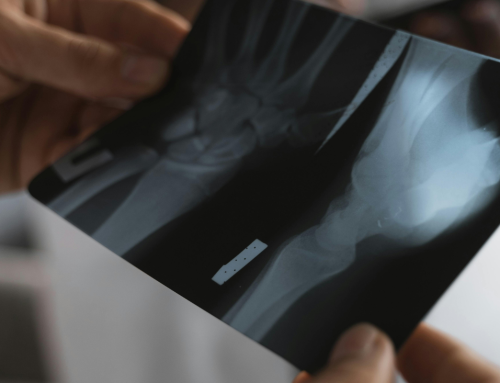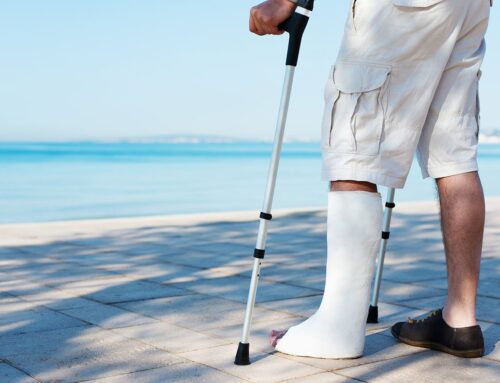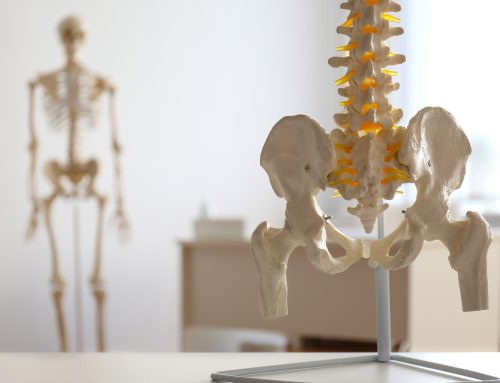In the realm of health and well-being, we often focus on factors like diet, exercise, and genetics as the pillars that uphold our vitality. However, there’s one crucial element that often flies under the radar, silently influencing our body’s foundation: stress. While stress has long been associated with mental and emotional strain, emerging research is shedding light on its profound link to bone health. In this article, we delve into the fascinating world where stress and bones intersect, uncovering the hidden impact that stress can have on the skeletal system.

The Physiology of Stress: Unveiling the Underlying Mechanisms
Before we delve into the connection between stress and bone health, let's grasp the intricate physiology of stress. Stress triggers the release of cortisol, often referred to as the "stress hormone," by the adrenal glands. Cortisol plays a vital role in the body's fight-or-flight response, mobilizing energy and resources for immediate action.
While cortisol serves as a survival mechanism in short bursts, chronic stress leads to consistently elevated cortisol levels. This prolonged exposure can have cascading effects on various bodily systems, including bone health. How exactly does this happen? Let's explore.
Cortisol and Calcium: A Delicate Balancing Act
In the grand scheme of health, calcium is synonymous with bone strength. It's the primary mineral that gives bones their sturdiness and resilience. However, when chronically elevated, cortisol can disrupt the delicate balance of calcium in the body.
Elevated cortisol levels prompt the release of calcium from bones into the bloodstream. This phenomenon, known as "bone resorption," weakens bones over time, rendering them more susceptible to fractures. Furthermore, cortisol interferes with calcium absorption from the diet, compounding the issue.
Inflammation and Osteoporosis: The Role of Stress
Stress isn't just about cortisol; it's also intricately linked with inflammation. Inflammation, the body's response to injury or harmful stimuli, can be triggered by chronic stress. But how does this relate to bone health?
Research suggests that chronic inflammation contributes to the development of osteoporosis, a condition characterized by decreased bone density and increased fracture risk. Inflammatory molecules, when present in excess due to ongoing stress, can hinder bone-building, leading to weakened bones that are more prone to fractures.
Mind-Body Connection: Stress, Cortisol, and Bone Cells
The mind-body connection is a marvel of human physiology, showcasing how mental well-being influences physical health. This connection extends to bone health as well.
Recent studies have illuminated a direct relationship between stress, cortisol levels, and bone cells called osteoblasts. Osteoblasts are responsible for building new bone tissue. Chronic stress has been shown to inhibit osteoblast activity, impairing the body's ability to form new bone and repair micro-damage.
Lifestyle Factors: Stress, Exercise, and Nutrition
It's worth noting that stress doesn't exist in isolation; it often interacts with other lifestyle factors that impact bone health. Exercise, for instance, is a double-edged sword. Moderate and regular exercise promotes bone strength, but excessive exercise coupled with chronic stress can lead to hormonal imbalances that compromise bone health.
Nutrition also plays a pivotal role. Stress can disrupt eating patterns, leading to poor dietary choices that lack the essential nutrients required for bone maintenance. Moreover, stress affects the gut, potentially impairing nutrient absorption critical for bone health.
Stress Management: A Prescription for Stronger Bones
Understanding the stress-bone health connection opens the door to proactive measures that can fortify our bones and overall well-being. Here’s how you can work towards better bones with stress management.
Mindfulness and Relaxation Techniques: Practicing mindfulness, meditation, and deep breathing can help reduce cortisol levels and counteract the impact of chronic stress on bones.
Physical Activity: Engaging in regular, moderate exercise not only boosts bone strength but also aids in stress management. Activities like yoga and tai chi combine movement and relaxation, offering a two-fold benefit.
Balanced Nutrition: Prioritizing a balanced diet rich in calcium, vitamin D, and other bone-supporting nutrients is crucial. Moreover, a well-rounded diet supports overall health, aiding the body in handling stress more effectively.
Social Support: Cultivating strong social connections acts as a buffer against stress. Positive interactions and a robust support system contribute to lower stress levels and better bone health.
Professional Guidance: For individuals facing chronic stress, seeking guidance from healthcare professionals, therapists, or counsellors can provide effective stress management strategies.
In the hustle and bustle of modern life, stress often takes center stage. But understanding its intricate connection to bone health empowers us to holistically take charge of our well-being.
Stress isn't just a mental or emotional phenomenon—it's a physiological cascade that reverberates throughout the body. By prioritizing stress management through mindful practices, balanced nutrition, and regular exercise, we can not only preserve the integrity of our bones but also enhance our overall quality of life.
Unexpected fractures can be an additional stress factor in your life. From mobile one day to physically limited the next, most Canadians count down the days until they’re back to pre-injury living. Explore Fracture Healing’s device to experience the relief of faster healing. Contact us to learn more.
Did you know that stress affects more than your mental health? What stress management technique is your favourite? Share your thoughts with our readers in the comments below.





